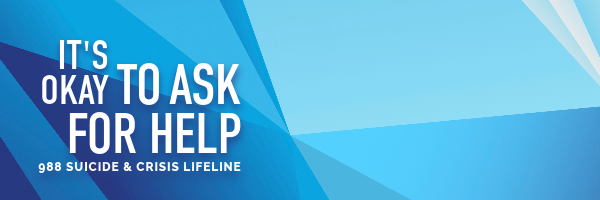Responding to Suicidal Talk

Signs That a Student May Be Distressed or Thinking of Suicide
- Overt (or veiled) references to suicide - verbally or in writing
- Statements of helplessness or hopelessness
- Signs of persistent or prolonged unhappiness
- Isolation from friends and family
- Pessimistic feelings about the future
- Threats to harm self or others
- Excessive absences or tardiness, especially if representing a change in functioning
- Listlessness, lack of energy, or falling asleep in class
- Marked changes in personal hygiene
- Extreme mood changes or excessive, inappropriate displays of emotions
- Poor academic performance and preparation, particularly if such behavior is a change from previous functioning
- What to do if you suspect distress or suicidal ideation:
- Stay calm, as this will help you respond more effectively, and also help to reduce the student’s anxiety or agitation. Remember that it is not unusual for people to think or talk about suicide.
- If possible, provide a quiet, private place to talk with the student. Provide supportive and non-judgmental listening.
- If the student appears to be dangerous to self or others (or you are not sure), do not leave the student unattended. Reach out for professional help immediately (see numbers below).
- Give the student information about counseling services at DSU and in the community and encourage the student to seek assistance. You can help a student make an appointment by calling or walking over to the Counseling Center with the student. Touch base with the student the next time you are in contact to find out if your suggestion was followed. You may need to repeat your suggestion several times before a student will go to see a professional.
Resources for Responding to Suicidal Talk or Other Mental Health Emergencies:
- Phone consultation with a Counseling Center staff member is available at (605) 256-5121 on weekdays (except when the university is closed).
- After hours, you may contact the National Suicide Prevention Line at 988.
- You can walk the student over to the Counseling Center for crisis consultation Monday through Friday during working hours.
- If the student is unusually aggressive or otherwise unmanageable, dial 911.
- Be prepared to provide as much information as possible about the student and the situation to the campus resource you contact.
